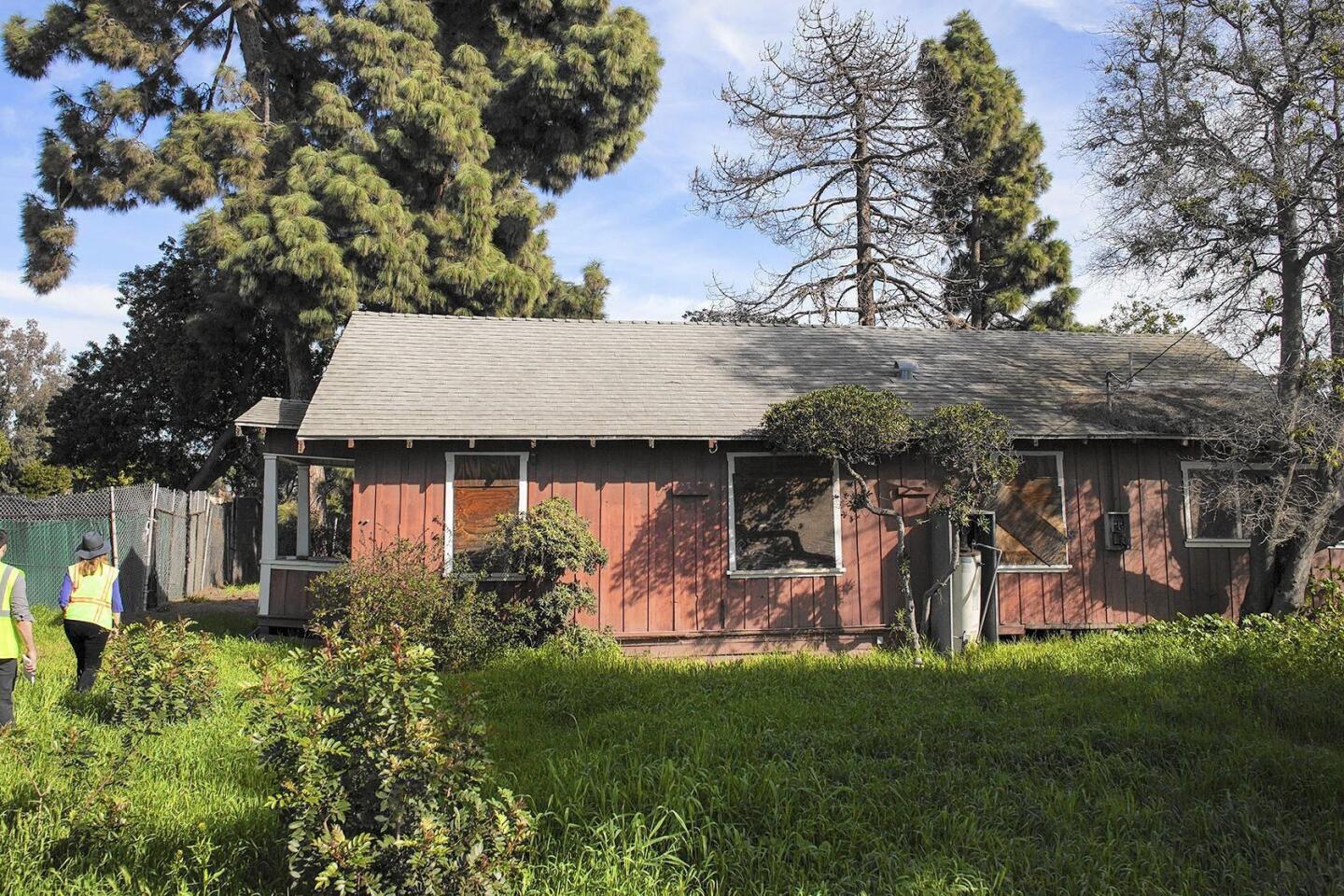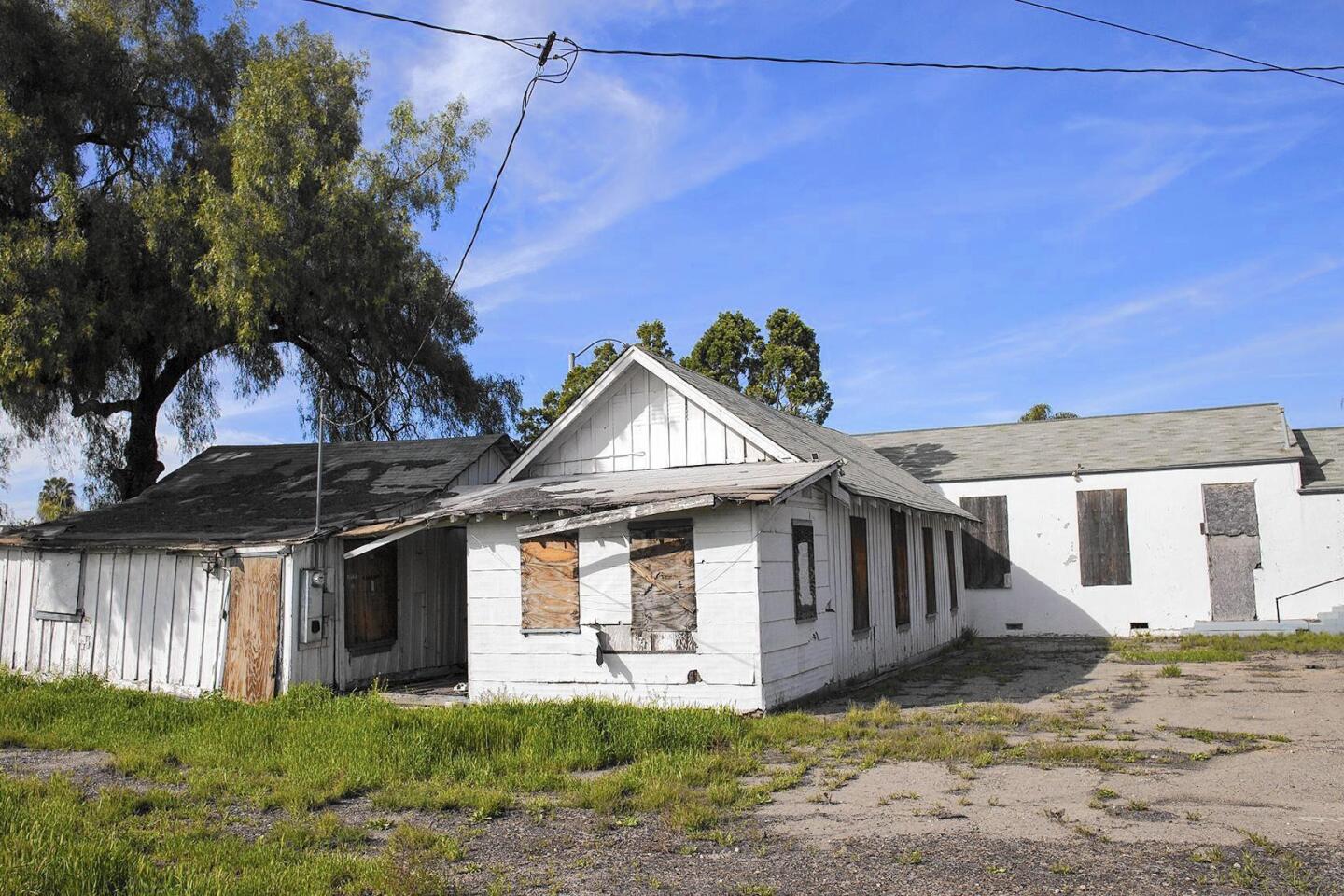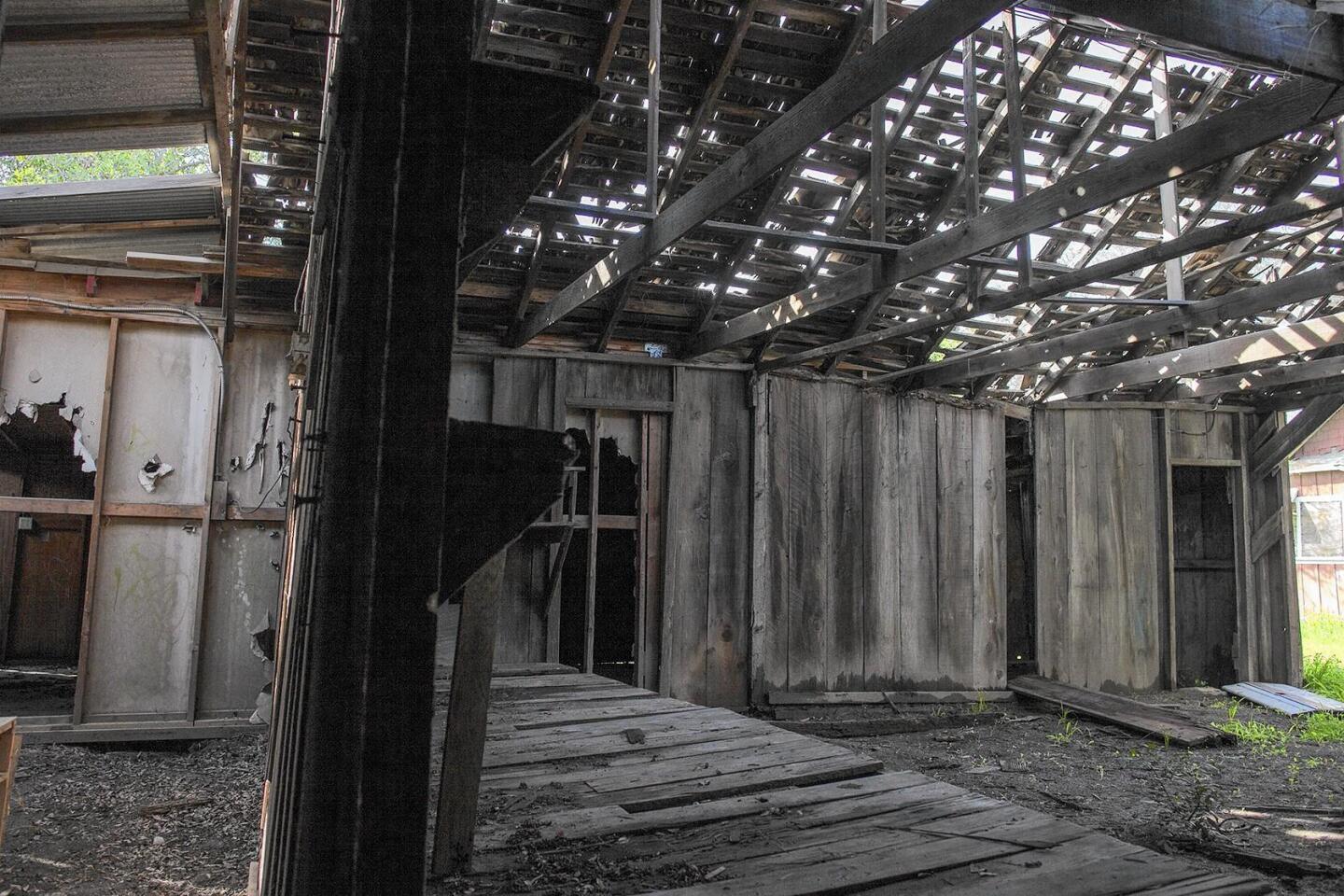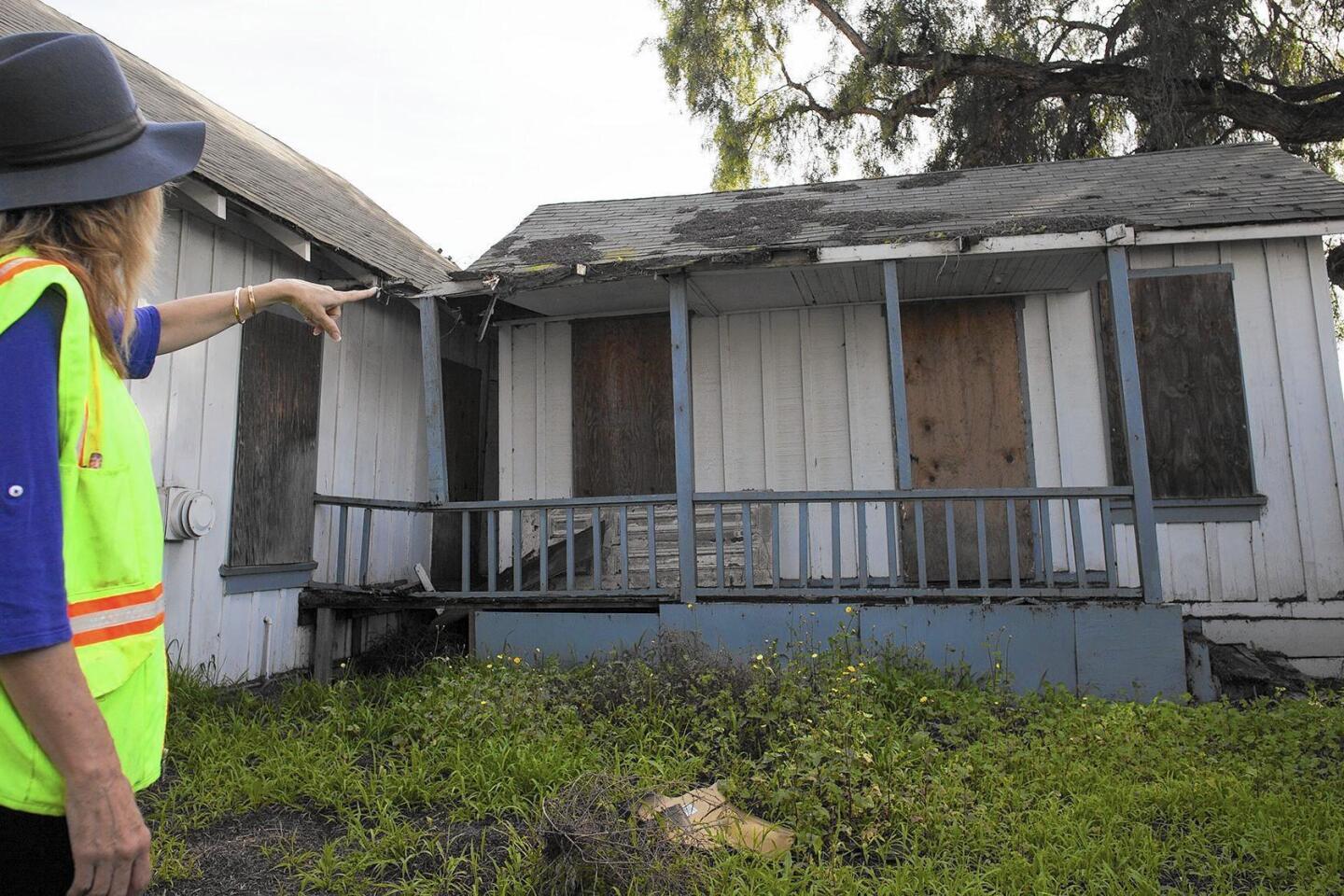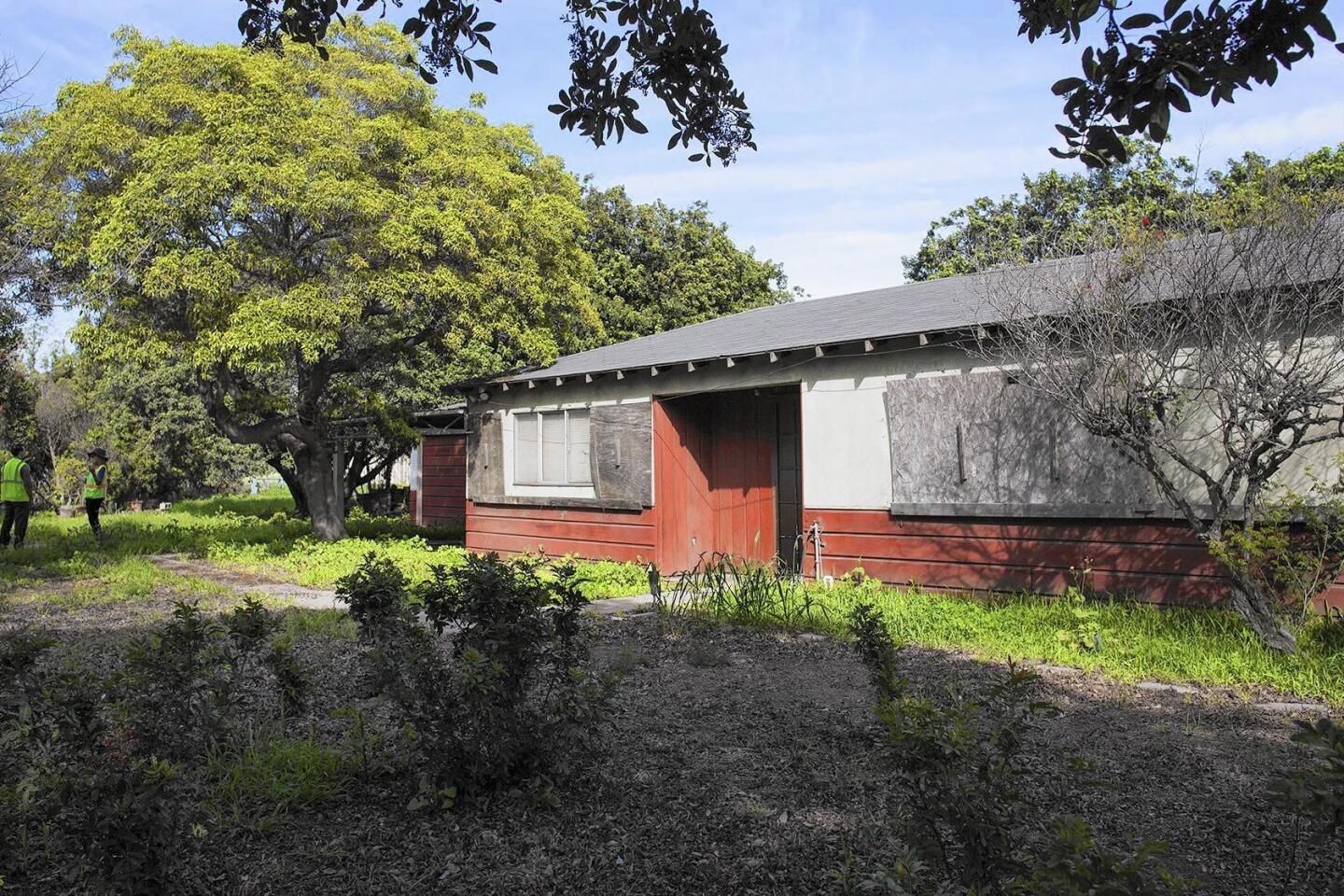75 years ago, an executive order allowing internment of Japanese Americans upended lives in Wintersburg
The room is dark and smells of damp wood. A solitary chair sits in the center next to a file cabinet, its drawers pulled out. Technological relics, like an old, broken printer, lie strewn about the floor.
The old office of the 1910 mission at Historic Wintersburg is boarded up now, the detritus of another era its only occupants. But decades ago, in the midst of World War II, a reverend was interrogated in the building by the FBI, and he and his entire congregation were then shipped off to relocation camps as part of Executive Order 9066.
The law, authorized by President Franklin D. Roosevelt on Feb. 19, 1942, allowed the federal government to corral Japanese Americans into internment camps during World War II’s atmosphere of mistrust following the bombing of Pearl Harbor.
These are the stories that Mary Urashima, who wrote a book on Wintersburg and is working to restore the dilapidated structures on the site in Huntington Beach, tells as she shows visitors around.
Historic Wintersburg, a 4.4-acre parcel of land in Huntington Beach off Warner Avenue and Nichols Lane, has a deep historical connection to Roosevelt’s order. At the time, the Japanese Presbyterian church on the grounds was one of the few places where Japanese pioneers could come together in Orange County, Urashima said.
After that FBI visit, its congregants were relocated to camps around the country, she said.
Masao Masuda, 99, a member of the church, was living on a farm in what is now Fountain Valley in 1942 when the FBI came for him and his family. They were forced to relocate to a camp in Jerome, Ark., where they stayed for about three years. They were not told until later why they were taken, he said, his nephew, Dennis Masuda, joining in on speaker phone to help the elderly man convey his thoughts.
Masao Masuda, who still lives in Fountain Valley, said he remembers the armed guards and the fences. He also remembers the cramped rooms. There were two: one where his parents and sisters stayed and another that he and his brother shared.
When the nights grew cold, the family would crowd around a pot-belly stove for warmth.
Faced with such massive change, the people of the camp tried to create some semblance of a regular life.
Masuda remembers boxing leagues and weightlifting groups as well as impromptu fun like chasing wild pigs with his brother Matsuo.
National treasure designation
Historic Wintersburg was added to the nation’s 11 most endangered historic sites list in 2014, and in 2015 it was designated a national treasure. About 70 sites in the country have national treasure status; Orange County is home to one, according to Urashima.
Urashima, as chairwoman of the Historic Wintersburg Task Force, created by the Huntington Beach City Council in 2012, has been fighting to preserve and restore the site, which was once owned by the Furuta family. Its six structures date to the early 1900s and many are dilapidated.
Dennis Masuda, a former teacher at Marina High School in Huntington Beach, is also a member of the task force.
Urashima has long been in talks with Rainbow Environmental Services, a waste disposal company now known as Republic Services that owns the land but has agreed to put aside plans to develop the property and work with the task force.
In June, Wintersburg entered the stabilization phase, to bolster the unstable structures. Next, Urashima hopes to bring in archaeologists to retrieve and identify historic materials in the buildings.
The task force is also waiting for the completion of a report that a preservation architect compiled on each building, she said. The report will state the specific needs for the stabilization and preservation of each structure, and once the report is finished, Urashima said, a cost range can be identified.
Urashima also said she wants to bring the public into the project.
She plans on organizing residents in groups to help clear brush and to hold a “visioning” meeting where members of the community can meet with the property owner, the task force and City Council to discuss ideas about how to move forward with the preservation project.
But until the city can work out a purchase deal with Rainbow, some uncertainty will continue to hang over the property.
“Republic has indicated they are open to our discussions regarding acquisition of the property.... Our City Council liaisons are involved in these discussions,” Urashima said Wednesday, echoing previous comments.
Family’s military service
While the Masuda family was interned, two of Masuda’s brothers, Takashi and Kazuo, were fighting in the war with the U.S. Army.
Kazuo, a staff sergeant, was killed on July 6, 1944, on a night patrol near the Arno River in Italy, Urashima wrote in a blog post. Kazuo had been trying to redirect the attention of enemy soldiers so that two of his men could escape after they found themselves surrounded, Urashima wrote.
He was posthumously awarded the Distinguished Service Cross, the second-highest military award given in the Army.
After the Masuda family was released from detention, as the war continued, Masuda and Mitsuo entered the U.S. military, Urashima wrote.
President Ronald Reagan would later reference Kazuo and the Masuda family in a speech regarding the signing of the Civil Liberties Act of 1988, which granted restitution to Japanese Americans who had been interned.
Masao Masuda concedes that has has felt anger toward the government that detained him.
“We were American citizens,” Masuda said. “Why should we be separated from the others?”
Twitter: @benbrazilpilot
